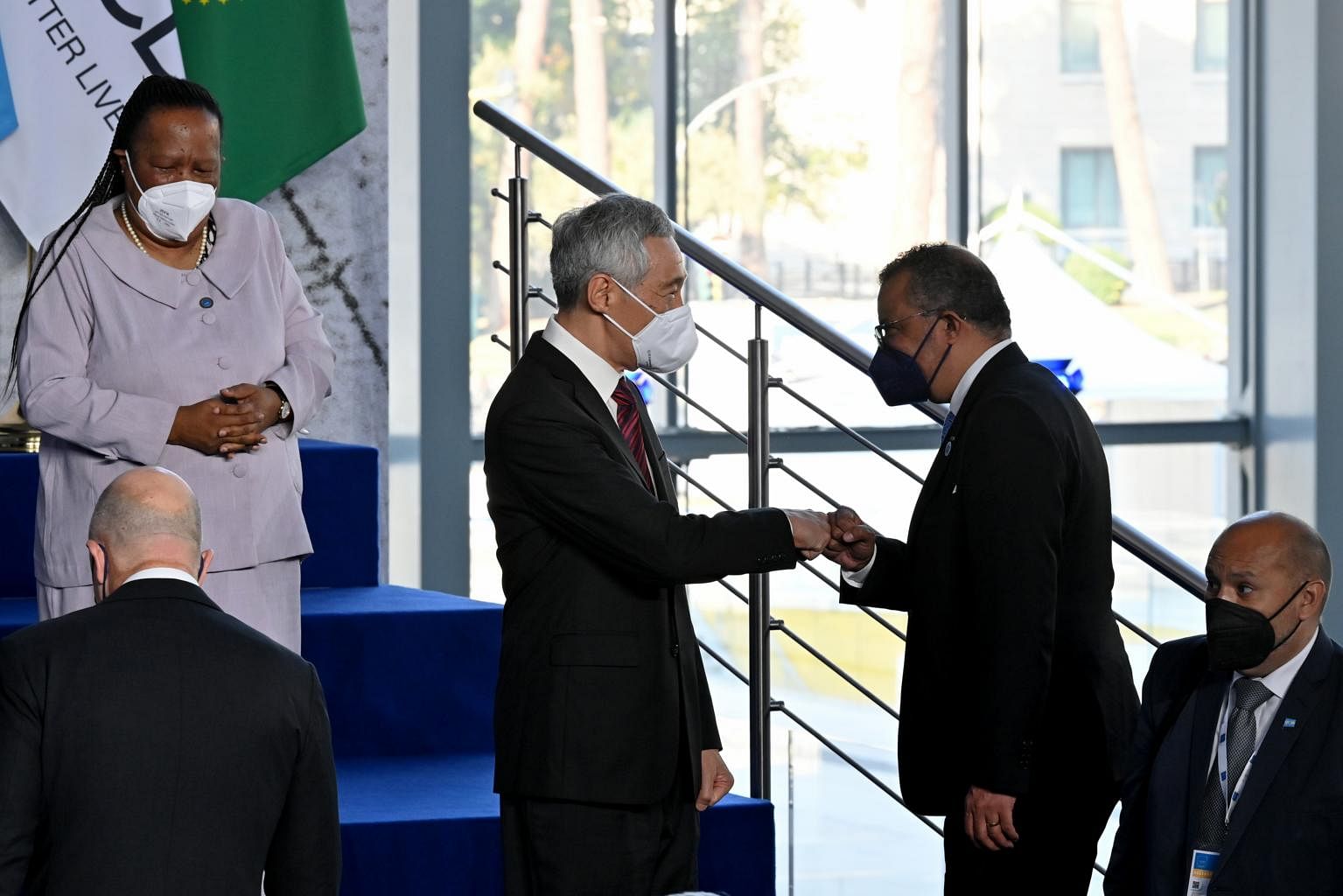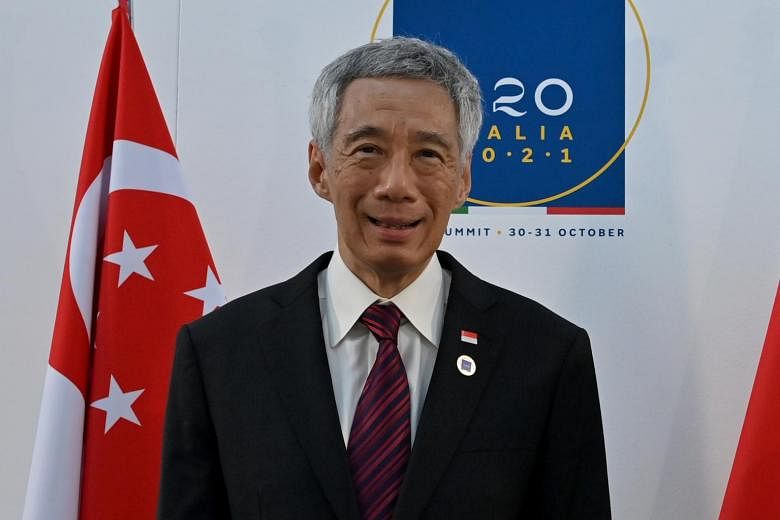ROME - The Covid-19 pandemic cast a long shadow at the opening of this year's Group of 20 (G-20) Summit, with Prime Minister Lee Hsien Loong joining other leaders in a call to shore up global cooperation in the face of an unequal recovery.
Building collective resilience will be essential, even as the global economy continues to recover, Mr Lee said on Saturday (Oct 30), at a session on the global economy and global health.
"In the near term, faster manufacture and deployment of vaccines worldwide will ensure a more durable and equitable recovery," he added. "In the longer term, strengthening pandemic preparedness and response will be crucial."
This year's summit is being held in Italy's capital, with G-20 leaders gathered in person for the first time since 2019. In a nod to the contributions of front-liners during the pandemic, leaders snapped a photo in which they posed next to healthcare staff.
The need for a renewed focus on multilateralism and cooperation was also highlighted by the host, Italian Prime Minister Mario Draghi. In his welcome speech, Mr Draghi observed that "going it alone is no longer an option".
"The more we go with all our challenges, the more it is clear that multilateralism is the best answer to the problems we face today. In many ways, it's the only possible answer," he said.
"We must do all we can to overcome our differences, and we must rekindle the spirit that led to the creation of this group," he added.
PM Lee commended Italy on its leadership towards galvanising global cooperation.
On Friday, the G-20 health and finance ministers pledged to help boost the supply of vaccines in developing countries and remove financing constraints in order to achieve the global goal of vaccinating at least 40 per cent of the population in all countries by the end of this year, and 70 per cent by mid-2022.
They also announced the creation of a global task force to coordinate government responses to the next pandemic.
Such initiatives to strengthen healthcare financing are important first steps, Mr Lee noted.

"The current global system for public health is significantly underfunded, and mobilising concerted action takes far too long," he said. "We need a mechanism for credible and inclusive global governance, as well as predictable and sustained funding to plug gaps in global health security."
The World Health Organisation (WHO) shares this view, he noted, adding that Singapore's Senior Minister Tharman Shanmugaratnam co-chaired the G-20 High-Level Independent Panel on financing the global commons for pandemic preparedness and response, and Singapore is glad to have contributed to this effort.
"We look forward to concrete deliverables to improve global health coordination and financing in order to better prepare for the next pandemic," Mr Lee added.
The Prime Minister also shared that Singapore has played its part on the regional and global level, by contributing to the Covax advance market commitment to make vaccines available to lower-income countries, as well as to the Covid-19 Asean Response Fund.

"We donated vaccines, oxygen and other critical supplies to those that needed them. We used Singapore's logistics capability, airport and ultra-cold chain facilities to become a distribution hub for vaccines," he said.
"We look forward to borders reopening and to further resumption of international trade and cross-border activities, in a safe manner."
In his speech, Mr Lee also called on world leaders to work more with international bodies, such as the International Civil Aviation Organisation, WHO and International Air Transport Association in order to establish standardised safe travel protocols and mutually-recognised, interoperable digital health certificates, he said.
"A rules-based international system for free and open trade and global supply chains is critical to generate a sustained recovery and create new jobs," Mr Lee added.
"If we do this well, we can all look forward to a more prosperous and resilient future."
The summit continues on Sunday, when leaders will discuss topics such as climate change and sustainability.


